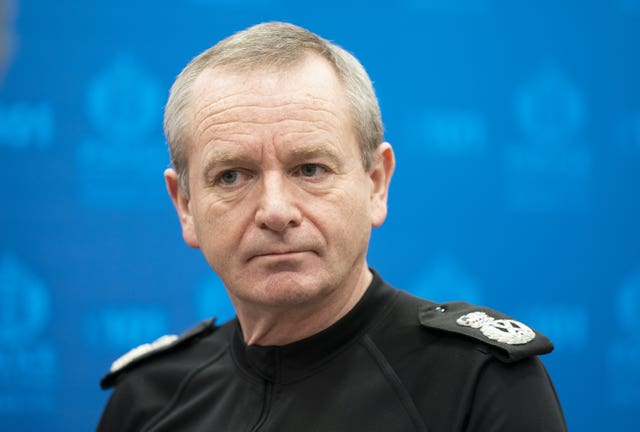Police Scotland urged to train all staff on equality amid ‘boys’ club culture’
A review was carried out in the wake of an employment tribunal won by a former female firearms officer.

Police Scotland is being advised to train all its staff and officers in equality and diversity in the wake of an employment tribunal which found its armed response unit had become an “absolute boys’ club”.
A report following the tribunal also “strongly” recommends that the structures, recruitment and selection process for the firearms unit are reviewed “to ensure that they are fully compatible with equality legislation, and that any barriers to selection are addressed”.
It comes after Rhona Malone successfully pursued a victimisation claim against Police Scotland at a tribunal last year – with the former armed response officer later awarded a settlement of almost £1 million.

That report, by Mark Hamilton, Deputy Chief Constable of the Police Service of Northern Ireland, has now been published.
Sir Iain, meanwhile, has also “underlined his personal commitment to leading change in policing in Scotland” to improve the experiences of women in the force.
Mr Hamilton’s report recommends “training should be rolled out to all officers and staff on equality and diversity” – with this initially focused on areas of the force where “there is a perceived ‘men’s club’ culture”.
The report noted: “There are identifiable individuals who are in need of this training, although it would do no harm to refresh all.”
This should send out a “clear message” that where protocols are breached, this could give rise to disciplinary or misconduct referrals, it added.
It comes after the tribunal heard the “culture experienced within armed police was described as ‘absolutely boys’ club and horrific’” – with evidence being put forward that an inspector had posted images of topless women into a work group chat.

It was suggested that the whole team should be trained on acceptable conduct within the organisation, with the sanctions for failing to comply with this set out.
Undertaking this, and other recommendations, “will by no means necessarily resolve the culture” within the unit, the report said.
But it said: “Failing to appropriately address the issues may only result in further criticism should they arise again in similar circumstances.”
The report went on to “strongly recommend that the structures, recruitment, selection processes pertaining to the firearms unit are reviewed, to ensure that they are fully compatible with equality legislation, and that any barriers to selection are addressed”.
It further recommended it may now be “an opportune time” for the HR department within Police Scotland to review its standard operation procedures for dealing with grievances.
This should consider if current processes are “up to date and fit for purpose” ahead of further training being rolled out, it suggested.
The issue was raised after the report told how a senior member of the HR team in Police Scotland had recommended that Ms Malone’s grievance be dealt with by someone of chief inspector rank, outside of the force.
It was also the first grievance the officer had dealt with in her career in Police Scotland – with the report noting the employment tribunal had accepted evidence that they had described Ms Malone’s complaint as “petty”.
Any officer or staff member who undertakes the grievance process should have training, the report said.
It accepted this would be a “substantial undertaking” for Police Scotland “which will be a time-consuming task”.
The report also called for a “definitive message” to be issued by the force’s senior team, “promoting the organisation’s views on equality and diversity in the workplace” and making clear there will be “no tolerance” of any conduct which is contrary to this.
Police Scotland’s Deputy Chief Constable Fiona Taylor said: “The chief constable has provided a personal apology to Ms Malone for the serious issues highlighted in the employment tribunal judgment, including Police Scotland’s poor response when a dedicated officer raised legitimate concerns.
“The chief constable has also underlined his personal commitment to leading change in policing in Scotland which drives equality and inclusion to improve the experiences of all women, including our own officers and staff.”
Scottish Liberal Democrat deputy leader Wendy Chamberlain, herself a former police officer, said: “This report is clear that there are individuals who will need to make amends but also that there is a wider culture within Police Scotland which must be reformed.”
She added: “This will not be an easy report for the police service to digest. It will require both soul searching and responsible leadership, but it is important that these changes are made if the organisation is to win the trust of both staff and the wider public.”
Meanwhile Scottish Conservative community safety spokesman Russell Findlay commented: “Rhona Malone’s career was destroyed by a boys’ club culture that has cost Police Scotland over £1 million.
“The PSNI report reveals this costly and damaging saga could have been avoided if proper procedures had been followed and HR officers listened to.
“There are still women in policing fighting cases of sexism, so it is imperative that Police Scotland act on these recommendations in this report, and for their actions to match their rhetoric.”





